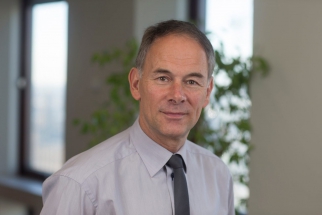Shell Lists Key Goals for Morocco
As the annual round of climate change talks – COP22 – get under way in Marrakech, Morocco, for ten days starting November 7, Shell's climate change adviser David Hone sets out his view of what needs to happen for the vague terms of the Paris agreement signed last year at COP21 to achieve their ends.
As negotiators and ministers meet, he said in a statement, "it's time to look at the small print, or the 20 pages of decision text" to implement that agreement.
First, "grandiose promise must become hard numbers." The decision text notes that combined action to reduce emissions specified by the 196 nations before they gathered in Paris falls far short of the goals of the agreement itself, to limit climate warming to well below 2° Celsius. "While the Paris agreement demonstrated a new political consensus on climate change, the same countries now have just two years to turn their promises into hard numbers," he said.
Second, deadlines must be set. After the stock-take in 2018, the pressure to deliver will only intensify. By 2020, nations will have to reformulate their actions. This will require prompt and probably challenging discussions on a national level, he said, and so far only the tiny state of Costa Rica has something close to a plan.
Third, precise numbers have to be clarified. The agreement offers a so-called stretch goal to limit warming to 1.5° Celsius and gives the science community just two years to establish how that might be achieved. Such a goal requires emissions to fall dramatically over the next 30 years.
Fourth, countries must adapt their energy transition timetables. The parties to the agreement have just four years to formulate how they will develop economy-wide strategies for lowering carbon emissions through to the middle of the century. Even for the most advanced economies, plans that stretch over decades outlining the direction of energy systems are a tall order, given the uncertainties historically surrounding energy planning, he said.

David Hone, Shell's climate change advisor (Credit: Shell)
And fifth, arguably the single most important step that governments can take to achieve the goal of the Paris agreement is to implement public policy that places a cost on carbon dioxide emissions. Article 6 of the Paris agreement offers the opportunity for government-led carbon pricing systems to come into alignment. "But Article 6, like the rest of the agreement, is brief. The negotiators now have to turn this into a functioning trading mechanism. This is no small task. But it is a vital one," he said.
William Powell


